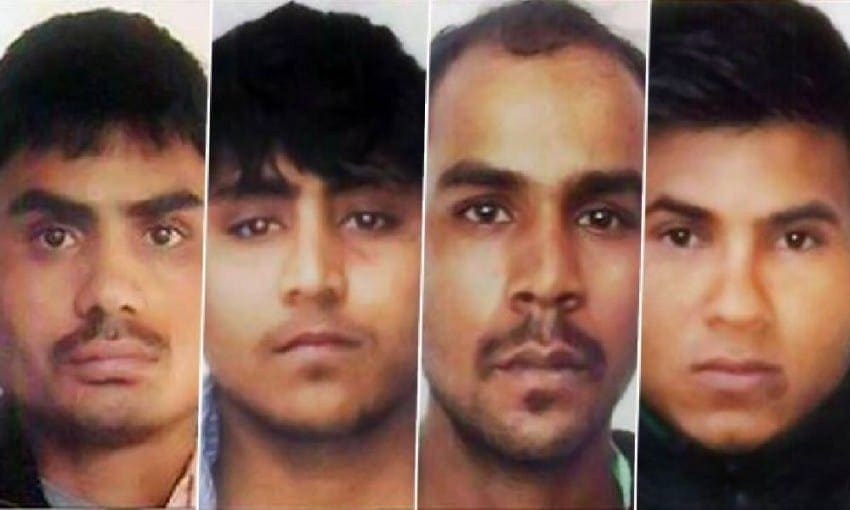Seven years after the gang rape and assault of a 23-year-old medical student, which sparked global outrage, four out of the six men involved were executed on Friday for rape and murder, a case that led to a series of protests and changes in Delhi’s system to ensure the safety of women.
The victim was a 23-year-old physiotherapy student, namely Nirbhaya by the press, as she could not be named under Indian law. Six people were arrested for the attacked, but only four were executed. Ram Singh was found dead in jail in March 2013 after allegedly taking his own life. One of the six was 17 at the time of the attack and served the maximum term possible for a juvenile in India, which was three years in a reform facility. The remaining four, Akshay Takur, Vinay Sharma, Pawan Gupta and Mukesh Singh were sentenced to death by a court trial in 2013. The group was hung in the capital’s high-security Tihar prison, the first executions in India since 2015.
In the months prior to the executions, the remaining four convicts filed petitions in the Supreme Court, pleading to reduce their penalties to life imprisonment. However, the top court rejected their petitions, including a mercy plea to India’s President Ram Nath Kovind. Along with this, a last-minute appeal to have the death penalties removed were also rejected before the executions.
Nirbaya was boarding an off-duty bus at roughly 20:30 local time on the 16th December 2012 with a male friend after watching a film. While the bus was in motion, a group of men stole the pair’s belongings and proceeded to take the victim to the back of the bus where they raped and assaulted Nirbhaya with iron roads, according to court documents. They also stripped and beat her friend, who they held down during the attack. Both were then thrown out on the roadside to die, but not before the men tried to run them over. Passers-by found the two naked and bloodied, and alerted the police. Nirbhaya died two weeks later in a hospital in Singapore, where she was transferred for further treatment once her conditions in New Delhi was worsening.
This incident prompted global outrage and led to the creation of new anti-rape laws in India. Protestors had occupied main streets, mostly young men and women, turned up at India Gate in the centre of the city, forcing police to use water cannons to disperse the crowd. Protests continued in Delhi and numerous other cities for two weeks, which was the number of days it took for the victim to succumb to her injuries. In an attempt to stop rising public anger, the Delhi government declared numerous measures with the intention to make the city safer for women, including more night patrols by police, checks on bus drivers and the banning of buses with dark windows. This attack also gave way to a national debate on the treatment of women.

